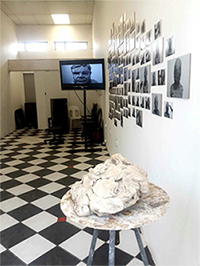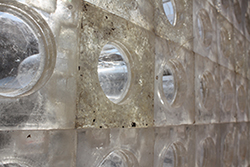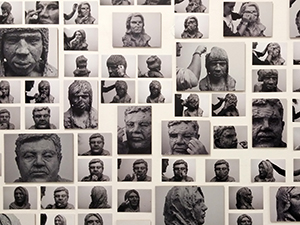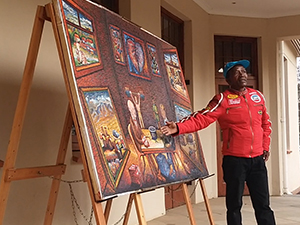Latest News Archive
Please select Category, Year, and then Month to display items
12 January 2024
|
Story Nonsindiswe Qwabe
|
Photo Sonia Small
 Since joining the UFS in 2008, Dr Grey Magaiza has worked extensively on approaches that can foster the socio-economic transformation of societies.
Since joining the UFS in 2008, Dr Grey Magaiza has worked extensively on approaches that can foster the socio-economic transformation of societies.
“The future should be one where communities can decide on their development agenda and futures. That’s the most important for me.” Dr Grey Magaiza, Deputy Director of the Centre for Gender and Africa Studies (CGAS) and Head of the Community Development programme on the Qwaqwa Campus, is passionate about capacitating communities to be agents of change and advancement. His vision for the future emphasises the empowerment of communities to take charge of their development by actively participating in decision making and the implementation of development projects that can improve their lives.
Since joining the UFS in 2008, Dr Magaiza has worked extensively on approaches that can foster the socio-economic transformation of societies. Over the years, he has crafted his research speciality into one that he is most proud of – being an interdisciplinary scientist immersed in the development of communities.
“I’m in a fortunate position of researching what I like. I say ‘fortunate’, because I’ve taken the time to understand what I’m passionate about, which is the overall field of rural livelihoods and livelihood futures – in short, community development. My research starts from an engaged university, understanding the elements that a university must use to enhance transformation and relevance to its immediate community in terms of development.”
One of the ways he has done this is by looking at social entrepreneurship as a development approach for young people in a rural setting. Through workshops with non-profit and civic organisations in Qwaqwa, Dr Magaiza has been helping these organisations to map out their needs and actively meet them through the involvement and support of external role players.
“We understand that communities are part of the national development agenda, but even that national agenda respects community knowledge and intentions and allows communities to shape their identity. A critical enabler of this is community organising. You bring back the capacity in communities to have dialogues on issues affecting them as spaces for engagement, knowledge exchange, and for people to just talk about their way forward.”
By enabling communities to define their development agenda, they can address their specific needs, challenges, and aspirations, he said. “When I look at livelihood futures, it’s quite an exciting aspect of my work – it’s like looking into a fortune tellers’ globe, because you’re not deciding for communities what they should do, but the communities themselves take those decisions.”
Social cohesion tops the agenda at arts week
2015-08-31

What’s the Difference deur Tanya Britz
Photo: Lelanie de Wet |
Launching the annual Arts 4 Social Justice (A4SJ) week, taking place from 12-19 August 2015 at the Institute for Reconciliation and Social Justice (IRSJ) the Bloemfontein Campus was alive with artworks placed in various buildings and open spaces.
Angelo Mockie said, “This is an opportunity to share knowledge.” Mockie is the coordinator of the annual Arts 4 Social Justice week which gives artists a platform to convey their experiences, and engage students and the public on social issues of national significance.

Meaningful Places deur Adelheid von Maltitz, bygestaan deur Nicolene Jonker en Xoliswa Msimango
Photo: Michelle Nothling |
Coinciding with the week’s events, the IRSJ launched the National Flagship Project in the Visual Arts, funded by the National Arts Council. The theme of the project is ‘Emancipating the African voice in the visual arts for social cohesion purposes’. According to Mockie, “this endeavour is crucial to confronting the histories, policies, and practices that have shaped and constrained the intellectual and social mandates of higher education institutions.”
Adelheid von Maltitz, Klas Thibeletsa, Richard Bollers, and Jaco Spies were some of the artists exhibiting their creative work. A host of students from the university’s Fine Arts Department also presented their works across the campus.
The focus on social justice aims to inspire audiences toward developing engaged citizenship and cohesive communities.

What’s the Difference deur Tanya Britz
Photo: Michelle Nothling | 
History is the Required Process by Motseokae Klas Thibeletsa
|